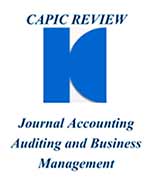Publicado 2021-11-04
Palabras clave
- IIRC,
- index de calidad,
- información voluntaria,
- reportes integrados
Cómo citar
Resumen
En los últimos 40 años el número de reportes independientes asociados a materias medioambientales, sociales y de gobiernos corporativos se ha incrementado considerablemente. A fines del 2013 se publica el marco conceptual de Reportes Integrados (RI) que integra aspectos financieros y no financieros en una sola narrativa mostrando cómo la organización crea valor en el tiempo. Mediante el desarrollo de un índex basado en el Marco Conceptual Internacional de los Reportes Integrados, este artículo investiga los factores que motivan la calidad de las divulgaciones corporativas de los RI presentados al cierre contable 2018 en el mercado chileno. El índice permite evaluar qué se está divulgando como información integrada y qué impulsa la variación en la calidad de estos reportes. Mediante el análisis de todos los RI divulgados, los resultados sugieren un alto grado de discrecionalidad en la información presentada. Existe información incompleta e inexacta, lo que se contrapone a la esencia de los RI. Se concluye que el proceso aún no está institucionalizado y que, contrario a las expectativas, no ha estimulado un nuevo mecanismo integrado de divulgación en Chile. Los resultados obtenidos en este estudio no son consistentes con lo que, en teoría, son los RI. Se debe tener cuidado al evaluar la información corporativa a través de un informe denominado “integrado” cuando no hay un análisis en profundidad del contenido mínimo requerido de acuerdo con los estándares internacionales.
Descargas
Citas
- Barth, M., Cahan, S., Chen, L., y Venter, E. (2017). The Economic consequences associated with integrated report quality: Capital market and real effects. Accounting, Organizations and Society, 62, 43-64.
- Bernardi, C., y Stark, A. W. (2016). Environmental, social and governance disclosure, integrated reporting, and the accuracy of analyst forecasts. The British Accounting Review.
- Brown, J., y Dillard, J. (2014). Integrated reporting: On the need for broadening out and opening up. Accounting, Auditing & Accountability Journal, 27(7), 1120-1156.
- Dhaliwal, D. S., Li, O. Z., Tsang, A., y Yang, Y. G. (2011). Voluntary nonfinancial disclosure and the cost of equity capital: The initiation of corporate social responsibility reporting. The Accounting Review, 86(1), 59-100.
- Dhaliwal, D. S., Radhakrishnan, S., Tsang, A., y Yang, Y. G. (2012). Nonfinancial disclosure and analyst forecast accuracy: International evidence on corporate social responsibility disclosure. The Accounting Review, 87(3), 723-759.
- Diamond, D. W., y Verrecchia, R. E. (1991). Disclosure, liquidity, and the cost of capital. The Journal of Finance, 46(4), 1325-1359.
- Guidry, R., y Patten, D. (2010). Market reactions to the first‐time issuance of corporate sustainability reports. Evidence that quality matters. Sustainability Accounting, Management and Policy Journal, 1(1), 33-50.
- Herbohn, K., Walker, J., y Loo, H. Y. M. (2014). Corporate social responsibility: The link between sustainability disclosure and sustainability performance. Abacus, 50(4), 422-459.
- Higgins, C., Stubbs, W., y Love, T. (2014). Walking the talk(s): Organisational narratives of integrated reporting. Accounting, Auditing & Accountability Journal, 27(7), 1090-1119.
- IIRC. (2013a). Capitals background paper for IR: International Integrated Reporting Council.
- IIRC. (2013b). The International Framework: International Integrated Reporting Council.
- IIRC. (2013c). The International Framework Released with Business and Investor Support. Retrieved from http://www.theiirc.org/2013/12/09/the-international-ir-framework-released-with-business-and-investor-support/
- IIRC. (2015). Creating value. Integrated reporting and investor benefits: International Integrated Reporting Council.
- Lu, C.-W., y Chueh, T.-S. (2015). Corporate Social Responsibility and Information Asymmetry. Journal of Applied Finance and Banking, 5(3), 105-122.
- Ocean Tomo. (2015). Intellectual capital equity. Retrieved from http://www.oceantomo.com/intellectual-capital-equity/
- Qiu, Y., Shaukat, A., y Tharyan, R. (2016). Environmental and social disclosures: Link with corporate financial performance. The British Accounting Review(0). doi:https://doi.org/10.1016/j.bar.2014.10.007
- Stent, W., y Dowler, T. (2015). Early assessments of the gap between integrated reporting and current corporate reporting. Meditari Accountancy Research, 23(1), 92.
- Stubbs, W., y Higgins, C. (2014). Integrated reporting and internal mechanisms of change. Accounting, Auditing & Accountability Journal, 27(7), 1068-1089.
- Norma de caracter general 385, (2015).
- van Bommel, K. (2014). Towards a legitimate compromise? : An exploration of Integrated Reporting in the Netherlands. Accounting, Auditing & Accountability Journal, 27(7), 1157-1189.
- Verrecchia, R. E. (1990). Information quality and discretionary disclosure. Journal of Accounting and Economics, 12(4), 365-380.
- Zhou, S., Simnett, R., y Green, W. (2017). Does integrated reporting matter to the capital market? Abacus, 53(1), 94-132.
- Zúñiga, F., Pincheira, R., Aguilar, C., y Silva, J. (2020). Informes de sustentabilidad y su auditoría: Efecto en la liquidez de mercado chileno. Estudios Gerenciales, 36(154), 56-65. doi:https://doi.org/10.18046/j.estger.2020.154.3558
- Zúñiga, F., Pincheira, R., Dimter, M., y Quinchel, B. (2021). Reportes integrados y la auditoría no-financiera: Efectos económicos. Working paper. SSRN. Retrieved from http://ssrn.com/abstract=3803195.
- Zúñiga, F., Pincheira, R., Walker, J., y Turner, M. (2020). The effect of integrated reporting quality on market liquidity and analyst forecast errors. Accounting Research Journal, 33(4/5), 635-650.


































